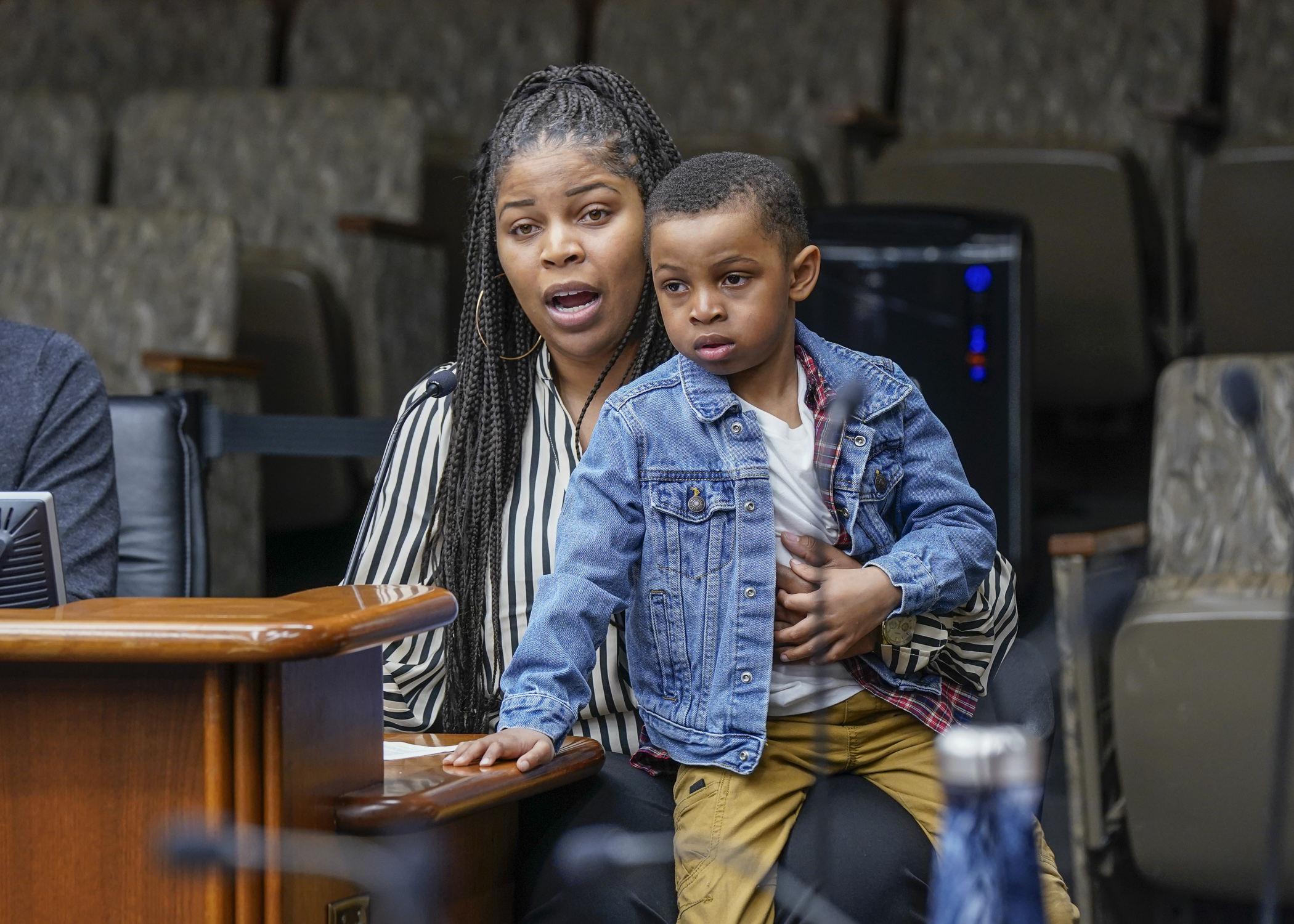Grants could help state catch up with electric school buses

Diesel school buses are probably bad for our kids’ health, with studies suggesting the fumes to be a common cause of asthma. Could changing over to electric buses be the answer? Several states are driving in that direction, and Minnesota seems to be watching other states’ state-funded programs disappear into the distance.
But Rep. Jessica Hanson (DFL-Burnsville) would like the state to get on board with the kind of widespread adoption of electric school bus fleets found elsewhere. That’s why she sponsors HF2502, which, as amended, would provide grants for school districts, utilities and student transportation service providers to purchase electric buses and infrastructure.
With two rounds of funding each year, the program would prioritize districts with higher rates of student poverty, rural districts and districts funded by the Bureau of Indian Affairs.
On Wednesday, the House Climate and Energy Finance and Policy Committee laid the bill over for possible omnibus bill inclusion.
“Electric school buses are no longer just a vehicle of the future,” Hanson said. “They’re a growing part of bus fleets around the United States. … In 2022, $1 billion of the [federal Infrastructure Investment and Jobs Act] funds were awarded nationally as part of the clean school bus program. Minnesota only received $1.6 million to purchase four electric buses, while Wisconsin received $25 million for 65 buses. And Michigan got $54 million for 138 buses.”
Dr. Daniel Trajano, a retired physician and University of St. Thomas professor, added that New York has committed to a carbon-free school bus fleet by 2035 and passed legislation with an additional $500 million in state funding for electric school buses. But Trajano especially emphasized the health benefits.
“Every school day, hundreds of thousands of Minnesota schoolkids are exposed to harmful diesel emissions to and from schools,” Trajano said. “The health impact from these emissions also harms drivers and school employees. It is even worse for students of color and low-income students, who are already disproportionately exposed to high levels of air pollution. For example, students in North Minneapolis and the Phillips neighborhood have asthma-related hospital visits at five times the rate of the rest of the state. Asthma-inducing particulate matter rates are 15 times higher inside the cab of a diesel school bus.”
Rep. Pat Garofalo (R-Farmington) asked about the estimated range of an electric school bus and Trajano replied that they get about 130 miles on a charge, with about a 20% reduction in colder temperatures. In warmer weather, Trajano said there are trials in which electric school buses seldom used in summer are being employed as “peaker plants” for utilities to tap into when extra electricity is needed.
Related Articles
Search Session Daily
Advanced Search OptionsPriority Dailies
Ways and Means Committee OKs House budget resolution
By Mike Cook Total net General Fund expenditures in the 2026-27 biennium will not exceed a hair less than $66.62 billion.
That is the budget resolution approved Tuesday by the House Ways...
Total net General Fund expenditures in the 2026-27 biennium will not exceed a hair less than $66.62 billion.
That is the budget resolution approved Tuesday by the House Ways...
Minnesota's budget outlook worsens in both near, long term
By Rob Hubbard It looks as if those calling for less state spending could get their wish, judging from Thursday’s release of the February 2025 Budget and Economic Forecast.
A state su...
It looks as if those calling for less state spending could get their wish, judging from Thursday’s release of the February 2025 Budget and Economic Forecast.
A state su...